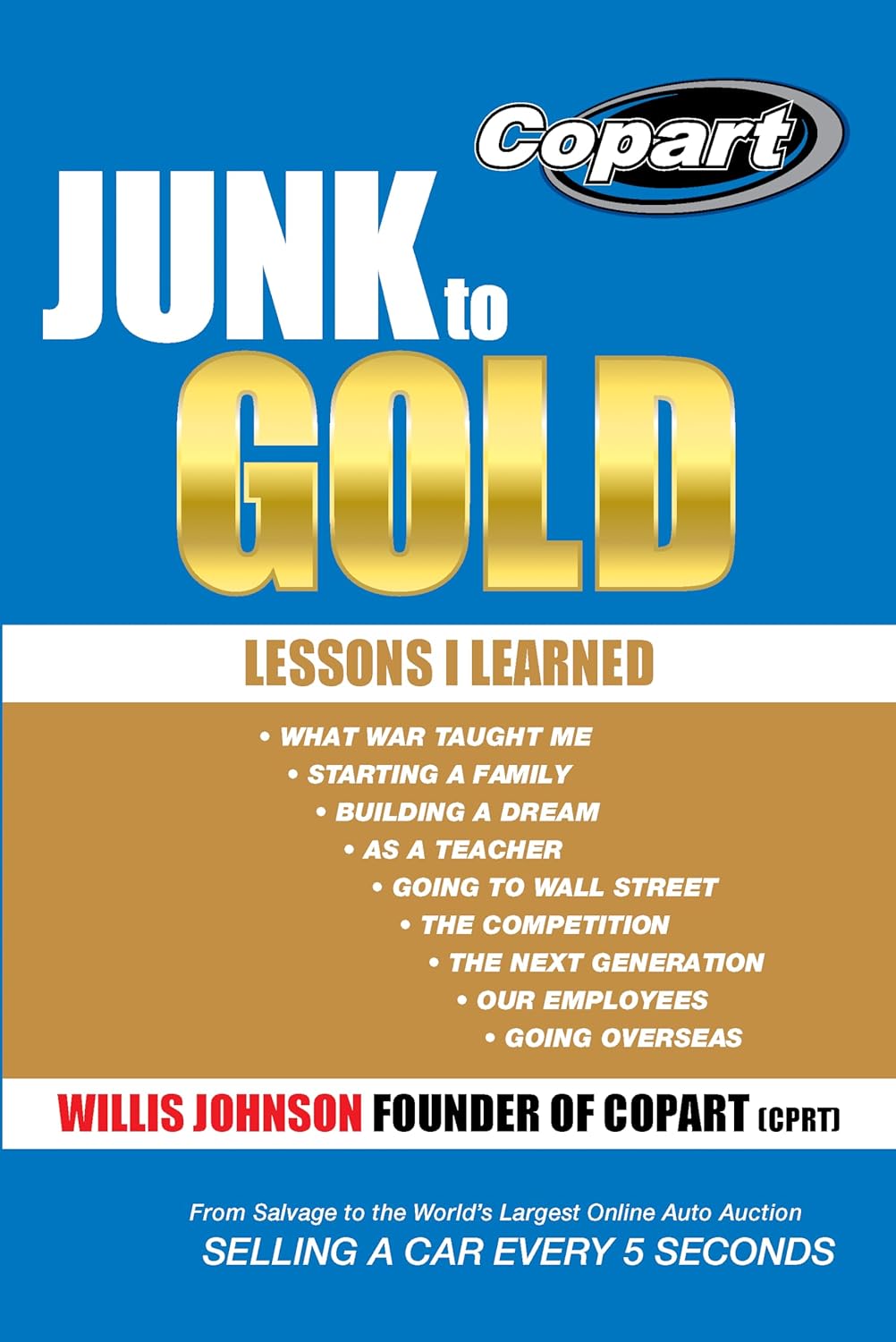Building a $26 Billion Company without a Vision or Even a Plan
Today, I began reading Junk to Gold. It’s by, and about, Willis Johnson, the founder of the online wholesale and salvage vehicle auction Copart. He tells readers about his life from childhood on and shares a series of stories from each point in his life and the lessons he learned.
Copart is a publicly traded company with a market capitalization (i.e., valuation) of roughly $52 billion as of this writing. The company’s core offering appears to be an online auction.
Given what the company is today, I expected Johnson to have had a big vision. I haven’t finished the book, but it’s clear that he didn’t. Instead, he built his company in what I’d consider a reactive manner.
He was constantly scanning his surroundings for opportunities and reading the newspaper (yes, the newspaper) to look for new ideas. When he saw an opportunity that seemed like a good deal, he pulled the trigger quickly. He was always shaking the trees, seeing what fell out, and snatching up the best option. Some of his biggest decisions were opportunistic plays that presented themselves. Often, he wasn’t even considering them the day before he committed.
When he saw a competitor doing something he liked, he promptly cloned it. For example, Johnson knew nothing about IPOs or the stock market. But when a competitor completed its IPO, Johnson decided to copy the move. Keep in mind that he didn’t even know what “IPO” stood for at the time. Roughly two years later, his company was publicly traded.
From what I can tell, junkyards (this is how Copart started) and auction businesses are highly unpredictable. You never know what’s going to roll through your doors. You have to react to whatever happens and try to turn a profit with whatever shows up. Johnson not only thrived in this environment but figured out how to build a massive business one reactive decision at a time.
I’m someone who likes to start with the end in mind and then figure out the best path to that goal. Johnson’s operating style isn’t something I’d be able to adopt, but I’m fascinated by how successful he was. I’m curious to finish the rest of Johnson’s unusual story.




